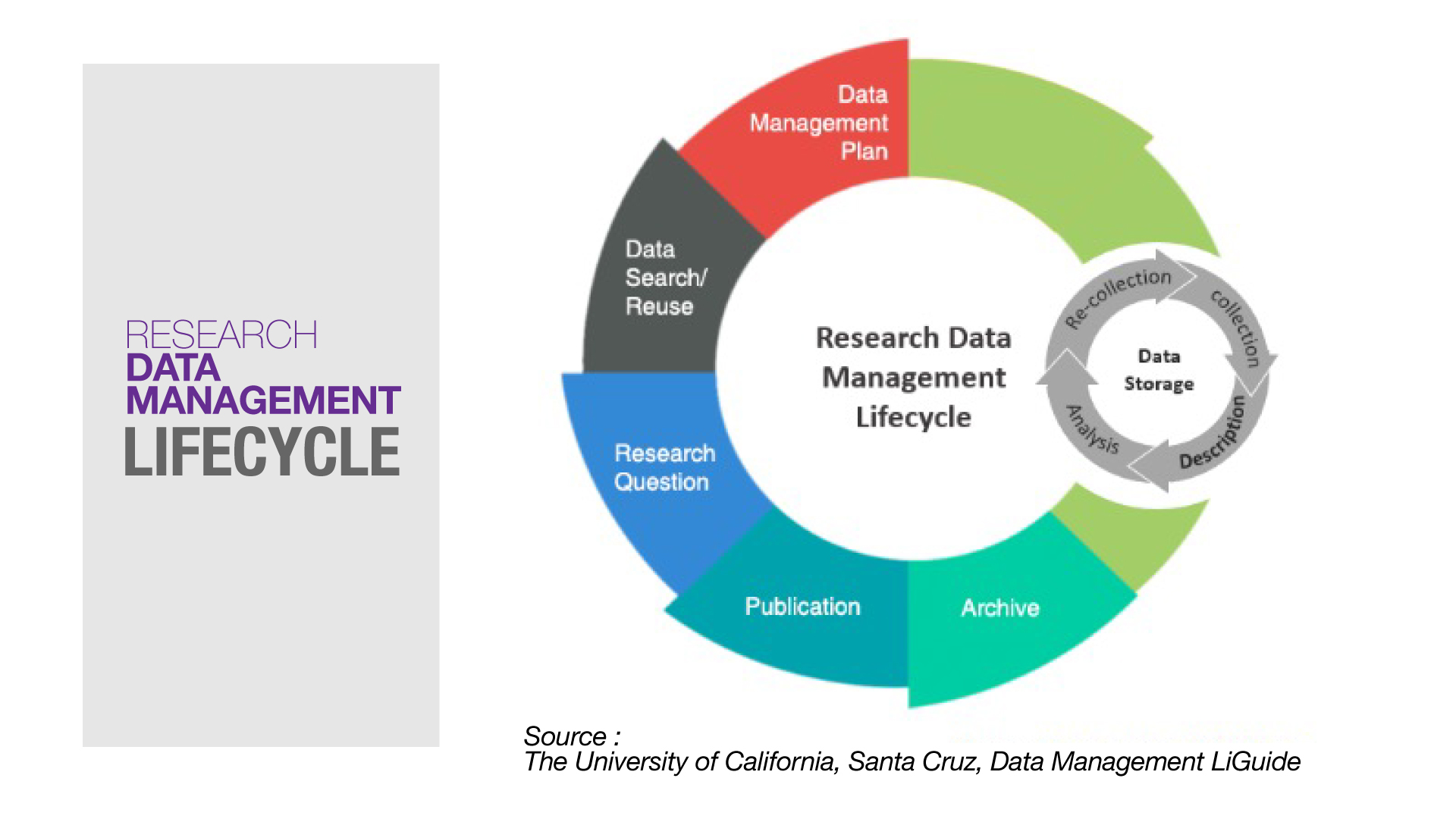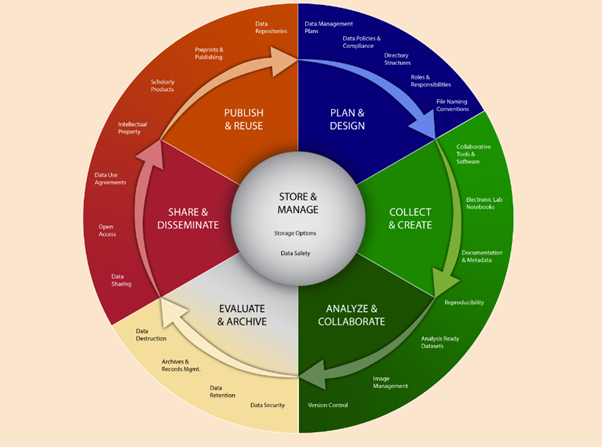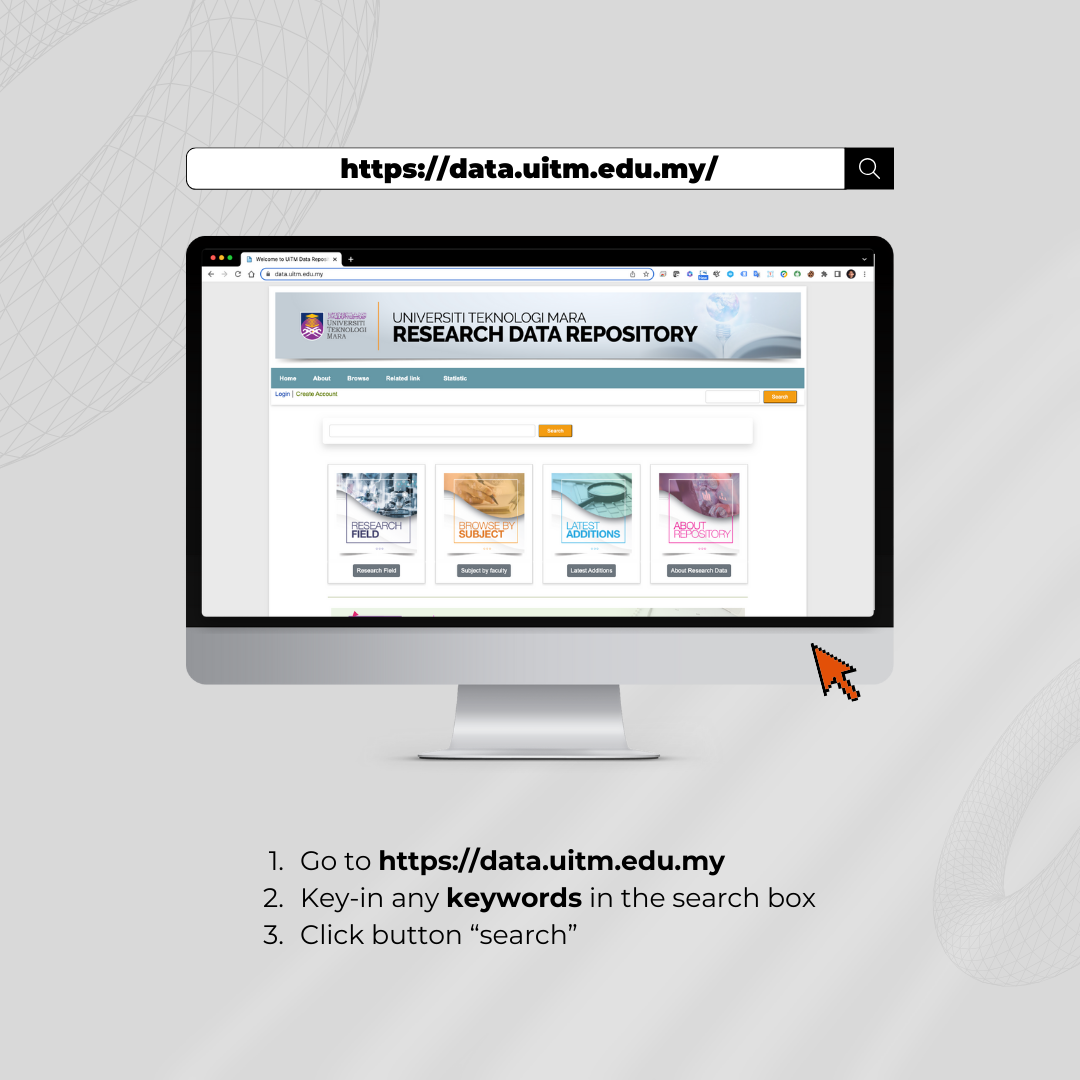Research Data Management (RDM) is "how you look after your data throughout your project. It covers the planning, collecting, organising, managing, storage, security, backing up, preserving, and sharing your data and ensures that research data are managed according to legal, statutory, ethical and funding body requirements."
(Whyte, A. & Tedds, J., 2011).
RDM occurs in every stage of the research lifecycle, not just at the end, where all the data files are zipped up in a folder for storage.

A data management plan (DMP) contains all the information related to managing the data for your project: what data, stored where by whom, how it is looked after, and when it is made public.
Planning how you are going to look after your data during your research, share it with your collaborators, and how you're going to preserve it after the project will save you time and money during and after your project.

Source : Data Lifecycle from the LMA Research Data Management Working Group
It is universally acknowledged that researchers are interested in data of all kinds, regardless of origin or type.
Here are some of the recognised definitions of research data:
"Research data, unlike other types of information, is collected, observed, or created, for purposes of analysis to produce original research results." Edinburgh University Data Library Research Data Management Handbook
“Research data means data in the form of facts, observations, images, computer program results, recordings, measurements or experiences on which an argument, theory, test or hypothesis, or another research output is based. Data may be numerical, descriptive, visual
or tactile. It may be raw, cleaned, processed, and held in any format or media”. The Queensland University of Technology Management of Research Data Policy
“The recorded information (regardless of the form or the media in which they may exist) necessary to support or validate a research project’s observations, findings or outputs”. The University of Oxford Policy on Management of Research Data and Records
- Ensuring research integrity and reproducibility.
- Increasing your research efficiency.
- Ensuring research data and records are accurate, complete, authentic and reliable.
- Saving time and resources in the long run.
- Enhancing data security and minimising the risk of data loss.
- Preventing duplication of effort by enabling others to use your data.
- Complying with practices conducted in industry and commerce.
- Facilitating the analysis of change, by providing data with which data at other points in time can be compared.
- Meeting funding body grant requirements (if applicable).
Universiti Teknologi MARA (UiTM) has established a robust Research Data Repository designed to serve as a centralized platform for storing, sharing, and disseminating valuable research data generated by the university's faculty and researchers.
Objectives of the Repository:
-
Preservation: The UiTM Research Data Repository is dedicated to the long-term preservation of research data, ensuring that valuable datasets remain accessible and usable over time.
-
Access and Sharing: One of the primary goals is to facilitate easy and secure access to research data. Researchers, academicians, and the broader academic community can utilize the repository to discover, access, and reuse datasets, fostering collaboration and knowledge exchange.
-
Compliance: The repository is aligned with national and international data management and sharing standards. Compliance with these standards ensures that the research conducted at UiTM meets the highest ethical and methodological requirements.
-
Visibility and Impact: By making research data openly available, the repository enhances the visibility and impact of UiTM's research output. This, in turn, contributes to the global body of knowledge and promotes UiTM's reputation as a research-intensive institution.



